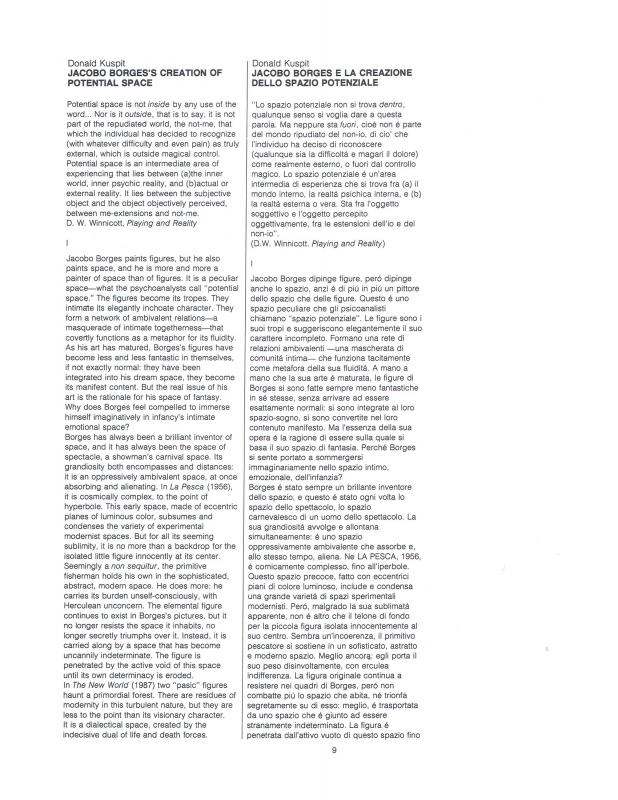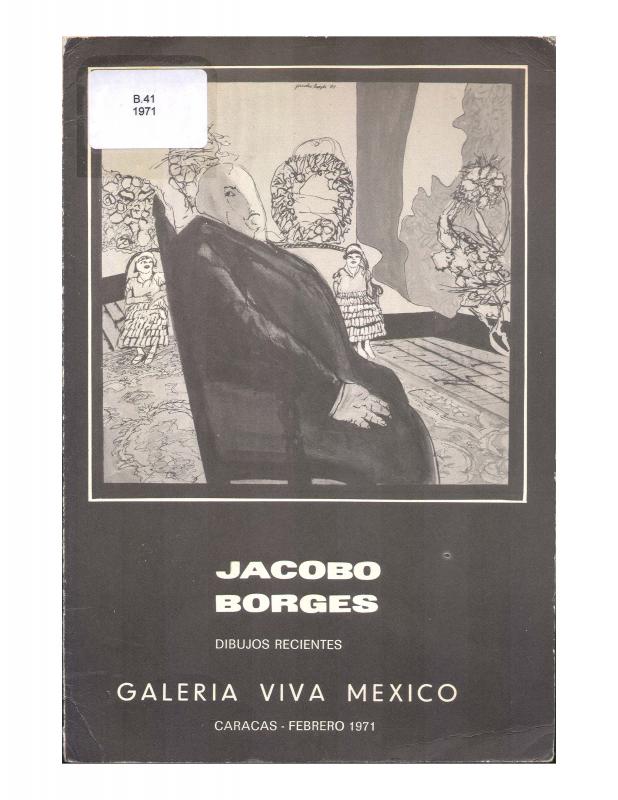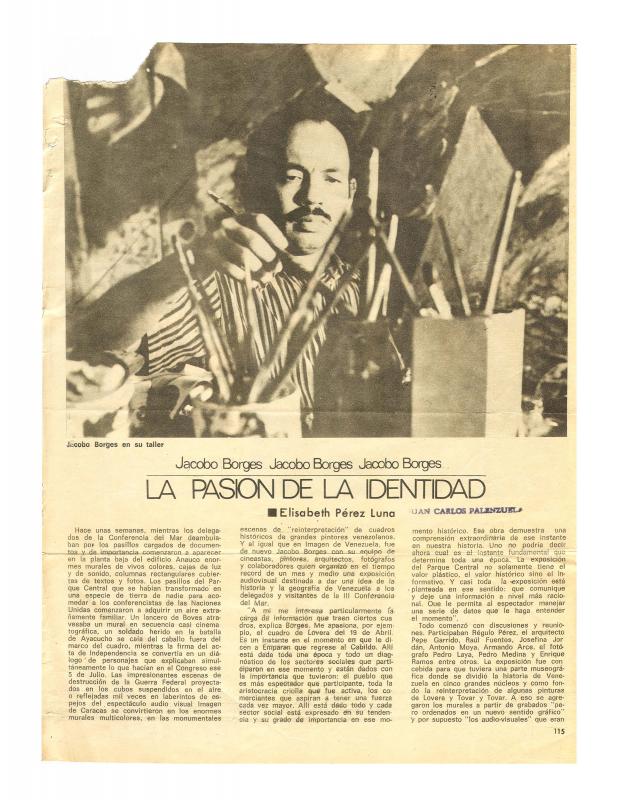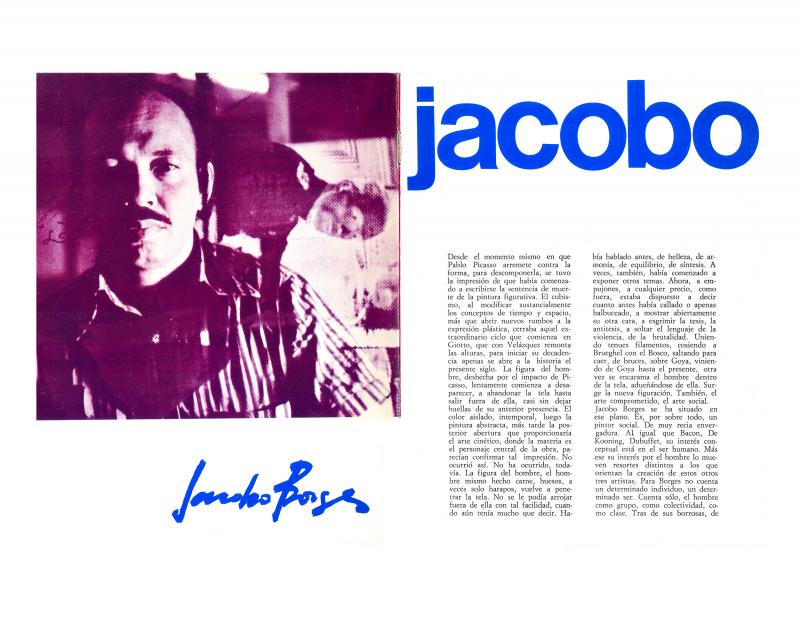This interview with Jacobo Borges (b. 1931) by Venezuelan journalist Lenelina Delgado took place in 1981, one day before the opening of the exhibition La Comunión at the Galería de Arte Nacional (GAN) in Caracas. The conversation centers on a few key topics: La Comunión itself and Borges’s perception of the city and the conflicts of identity to which it gives rise. In his own words, the artist explains the process by which the works in La Comunión were created, as well as the most important concepts they engage: timelessness, reality, memory, and recollection—all of which are recurring themes in much of Borges’s work. Linked together in a process, Borges explains that these ideas give shape to the artist’s attempt to capture reality in painting. Of course, he does not try to capture a “generic” reality, but instead “engages our reality,” meaning the specific reality of the constantly changing city of Caracas. On this premise, Borges justifies the use of the resource of “timelessness” or ambiguity to capture an array of instants simultaneously: reality cannot be captured in a still image, but instead in the relentless passage of time. Then, it would seem that Borges’s aim is to capture reality understood as an endless process. This is why he often makes use of other media, such as film. The second topic discussed in the interview—the city—is also a recurring theme in Borges’s work. A contradiction seems to arise about how Borges approaches this theme. He maintains that the city he intends to capture cannot be grasped, and what is more, does not exist because it is not a memory and that “we are sheer recollection.” In his view, the city is a “fiction,” a “set,” a “refuge”—the uniform product of a society that copies failed models of development, which is why Venezuelans have been riddled with a persistent problem of identity. [On Jacobo Borges’s work, see Donald Kuspit, “Jacobo Borges's creation of potential space” (ICAA digital archive doc. no. 1060608); Perán Erminy, “Una exposición de obras de Jacobo Borges” (doc. no. 1060424); a review by Elizabeth Pérez Luna, “Jacobo Borges: La pasión de la identidad” (doc. no. 1063714); and critic Inocente Palacios, “Jacobo Borges” (doc. no. 1060361)].




